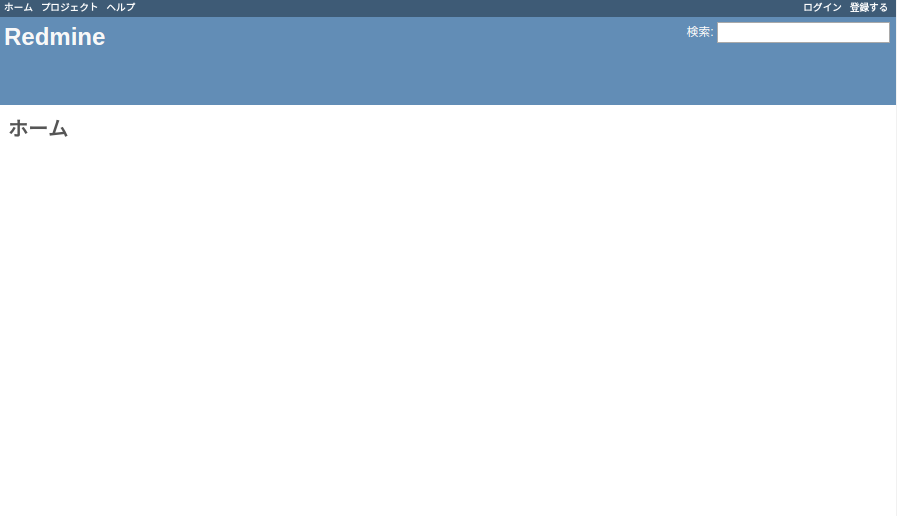This article will describe installing Redmine.
Table of Contents
1 Install Redmine
The following script will install Redmine automatically.
- Input password with expect automatically.
- root password for MySQL is mysql.
- MySQL table password for redmine is redmine.
#!/bin/sh MYSQL_PASSWORD="mysql" REDMINE_PASSWORD="redmine" TMP=`mktemp -t ubuntu-mysql.sh.XXXXXX` trap "rm $TMP* 2>/dev/null" 0 sudo apt install -y expect cat <<EOF > ${TMP} set timeout -1 spawn sudo apt install -y mysql-server expect "New password for the MySQL \"root\" user: " send "${MYSQL_PASSWORD}\n" expect "Repeat password for the MySQL \"root\" user: " send "${MYSQL_PASSWORD}\n" expect eof EOF expect ${TMP} cat <<EOF > ${TMP} set timeout -1 spawn sudo apt-get install -y redmine-mysql expect -re \ "Configure database for redmine/instances/default with dbconfig-common.*" send "yes\n" expect "Database type to be used by redmine/instances/default: " send "mysql\n" expect "MySQL application password for redmine/instances/default: " send "${REDMINE_PASSWORD}\n" expect "Password confirmation: " send "${REDMINE_PASSWORD}\n" expect eof EOF expect ${TMP} sudo apt-get install -y apache2 libapache2-mod-passenger bundler sudo su -c 'cat << EOF > /etc/apache2/mods-available/passenger.conf <IfModule mod_passenger.c> PassengerRoot /usr/lib/ruby/vendor_ruby/phusion_passenger/locations.ini PassengerDefaultRuby /usr/bin/ruby PassengerDefaultUser www-data RailsBaseURI /redmine </IfModule> EOF' cd /var/www/html sudo ln -s /usr/share/redmine/public redmine sudo chown -R www-data:www-data /usr/share/redmine sudo su -c 'cat << EOF > /etc/apache2/sites-available/redmine.conf <Directory /redmine> Options FollowSymLinks PassengerResolveSymlinksInDocumentRoot on AllowOverride None </Directory> EOF' sudo systemctl enable apache2 sudo systemctl restart apache2
2 Access to Redmine
Access to Redmine with the following URL. Default admin user password is admin.
http://<server>/redmine
